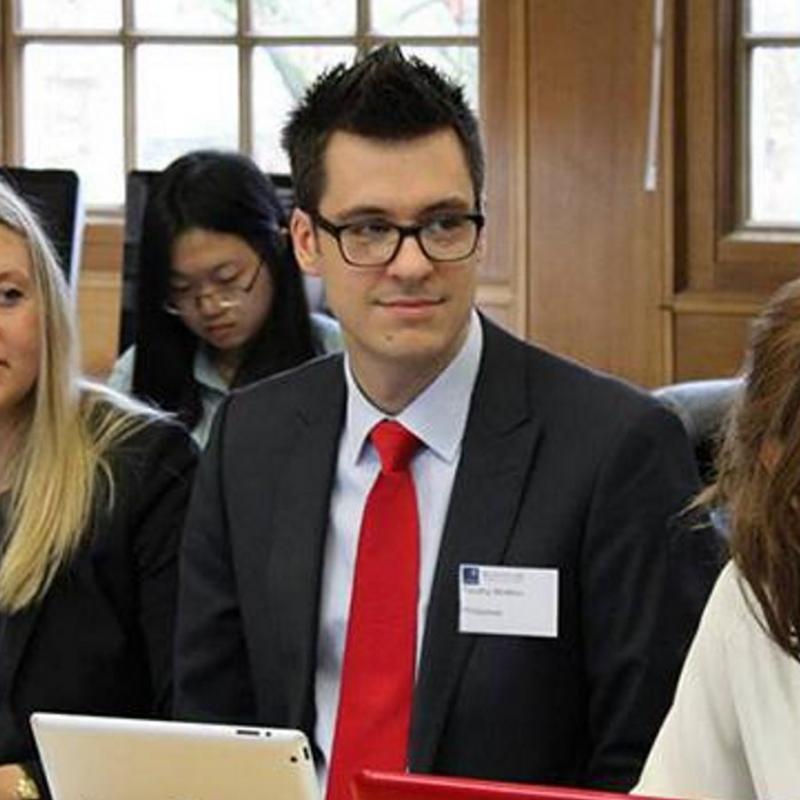Breadcrumb
A long-held commitment to international development and human rights issues led an engineer to a career change and the study of public policy.
Tim McMinn (MPP 2013) had been working as a structural engineer in Australia before he came to the Blavatnik School of Government to study for the Master of Public Policy. This role involved designing apartments, offices, bridges, and public buildings for a range of public and private sector clients.
A move into public policy might seem to be a significant shift in career direction, but for Tim, studying for the MPP is a natural continuation of his professional experience and long-held interest in urban policy, international development and human rights. Since studying at the University of Western Australia, where Tim started the Amnesty International and Engineers Without Borders chapters, he has been volunteering and campaigning alongside his professional work, and his aim was always to bring the two together. Now he hopes that that public policy is where he will be able to make the most impactful contribution and bring his skills and interests together.
“I was working on corporate social responsibility projects at my last employer. However, the more you look at these problems the more you realise that they cannot be effectively tackled on a project-by-project basis, which is the way that engineers tend to be involved in development work. I decided that I needed to broaden my skills base to work in public policy. That is what brought me to the Blavatnik School to study the MPP.”
Tim appreciates the broader perspectives that he is gaining from the MPP, by studying economics, philosophy, political science, and looking at science through a policy lens.
“The programme is giving me the opportunity to consume information in these areas in a more informed way, and to pursue my learning further when I complete the course. The programme is not only teaching me a lot now but it is also setting me up very well for this to be a continued process of learning over the coming years.”
After the one-year MPP, Tim aims to move to the finance and policy side of infrastructure development. His is considering opportunities in the private sector, development banks, or NGOs focused on these issues.
He has a message for other engineers considering studying an MPP: “The standard paths into policy-making, politics and government are law or economics. A lot of engineers therefore think that they don’t belong in this arena and that their skills aren’t relevant. However, my experience on the course suggests otherwise. Engineers bring valuable skills - project management, problem-solving and quantitative abilities - which are needed in policy-making, and often have a different perspective to lawyers and economists. So for any engineers who are politically engaged and interested in the big questions about society, policy, and governance, you are already halfway to being in a good position to apply for a course like the MPP. If you are interested, then I’d urge you not to rule yourself out – just apply!”
April 2014

